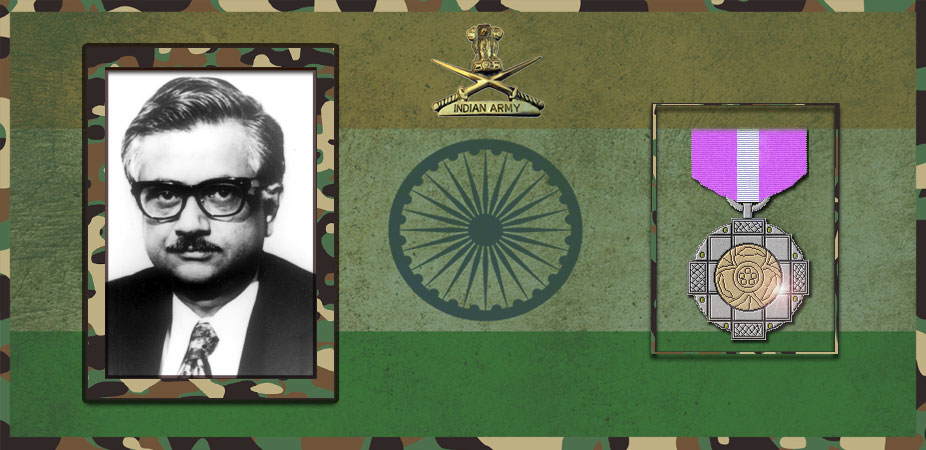Let's salute to our Indian Army together, We are proud to be Indian.
Let's salute to our Indian Army together, We are proud to be Indian.

Raja Ramanna “ರಾಜಾ ರಾಮಣ್ಣ” (Kannada) (28 January 1928 – 24 September 2004) was an Indian physicist who is best known for his role in India’s nuclear program during its early stages.
Having joined the nuclear program in 1964, Ramanna worked under Homi Jehangir Bhabha, and later became the director of this program in 1967. Ramanna expanded and supervised scientific research on nuclear weapons and was the first directing officer of the small team of scientists that supervised and carried out the test of the nuclear device, under the codename Smiling Buddha, in 1974.
Ramanna was associated with and directed India’s nuclear program for more than four decades, and also initiated industrial defence programmes for the Indian Armed Forces. Because of his directing role and leadership in developing the Indian nuclear programme over four decades, Ramanna is often considered the “Father of the India’s nuclear program”,and was also a recipient of Padma Vibhushan, India’s second highest civilian decoration, in honour of his services to build India’s nuclear programme. Ramanna died in Mumbai in 2004 at the age of 79.
Raja Ramanna was born in beginning of 1925 to Rukmini and Ramanna in Tumkur, in the princely state of Mysore. The parents having recognised his talent for music early in life were instrumental in introducing him to classical European music. Beginning his studies at Bishop Cotton Boys’ School, Bangalore, where he mostly studied literature and classical music, he later attended Madras Christian College and resided at St.Thomas’s Hall where he continued his interests in arts and literature but soon shifted back to physics. At Madras Christian College, Ramanna obtained a BSc in Physics and gained a BA degree in Classical music in 1947.
In 1947 Ramanna went on to attend Bombay University where he gained his MSc in Physics, followed by M.Mus. in Music theory. Ramanna was awarded a Commonwealth Scholarship, and travelled to Great Britain in 1952 to complete his doctorate. Ramanna attended London University’s King’s College and enrolled in a doctoral programme there. In 1954, Raja Ramanna obtained a PhD in Nuclear Physics and also a LRSM from King’s College London. In the United Kingdom, Ramanna was invited to do his research at the Atomic Energy Research Establishment (AERE) where he gained expertise in nuclear fuel cycles and reactor designing. While in the UK, Ramanna continued his interest in European music and Western philosophy, attending Opera and Orchestra performances every week.
European music and philosophy remained a lifelong passion for Ramanna, and after returning to India, Ramanna accomplished himself by performing classical European music at many public concerts in India and abroad. Ramannad also had a keen ear for Indian classical music. His musical talents also received wide appreciation in neighbouring Pakistan. In 1956, Ramanna was invited by the National College of Arts and National Academy of Performing Arts to perform and lecture on the classical piano with a live ensemble and received jubilant praise and honour for his performance.
A multi-faceted personality, Ramanna was a gifted musician, and could play the piano as dextrously as he could speak about atomic energy. Music was close to his heart, and one of the two books he wrote was The Structure of Music in Raga And Western Systems (1993). The other was his autobiography, entitled Years of Pilgrimage
In 1990, Ramanna was made Union minister of State for defence in 1990 by V.P. Singh administration. He was a nominated member of the Rajya Sabha from 1997 to 2003. Dr. Ramanna was closely associated with the I.I.T. Bombay, having been chairman of the board of Governors for three consecutive terms from 1975 to 1984. In 2000, Ramanna was also the first director of National Institute of Advanced Studies, Bangalore.